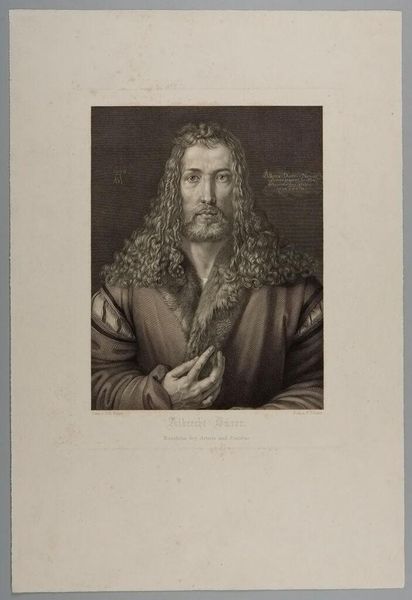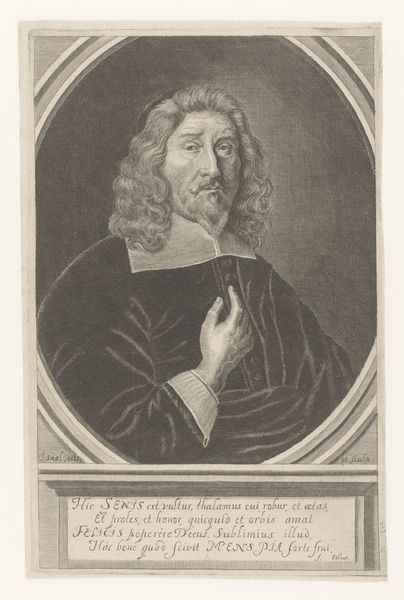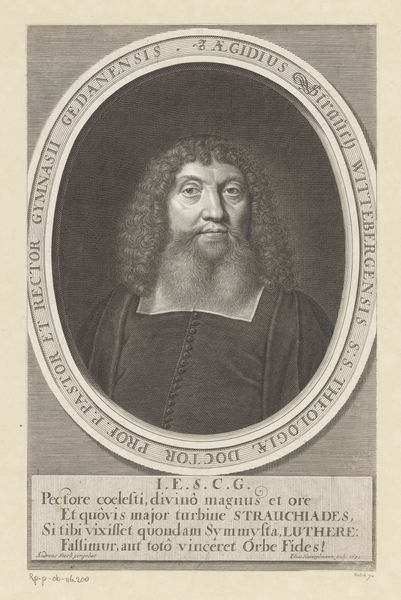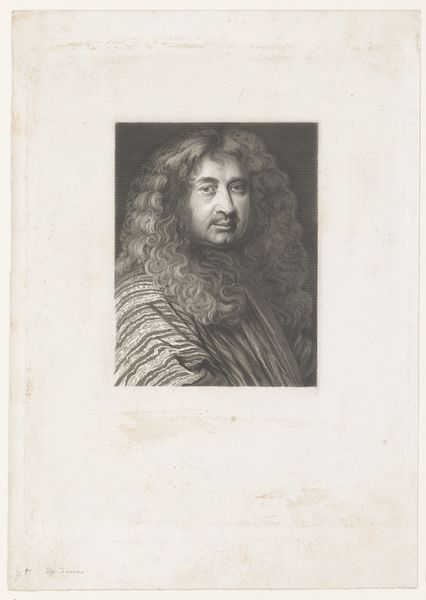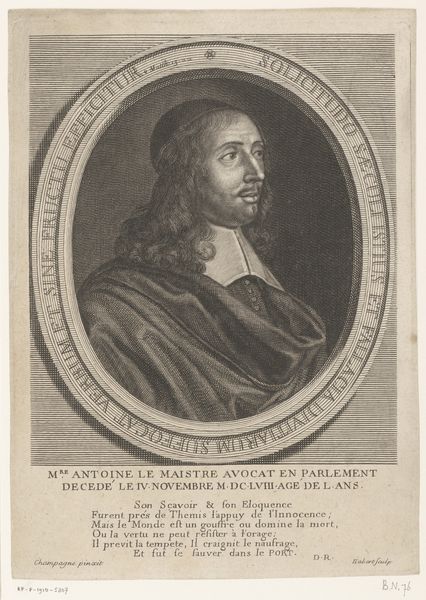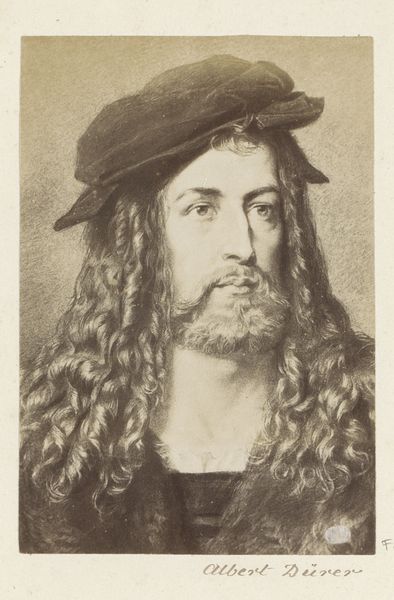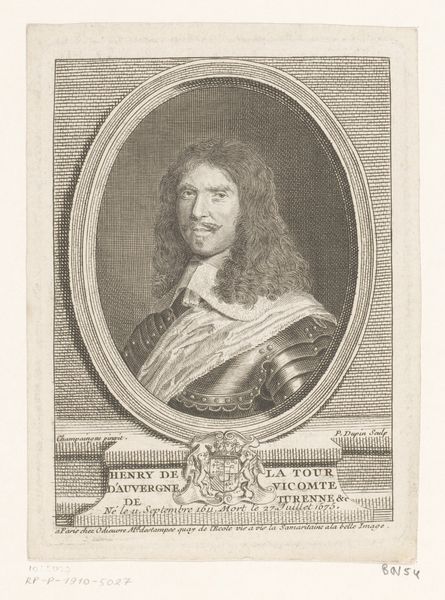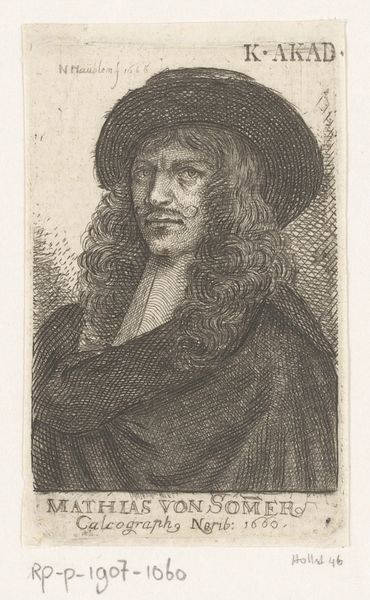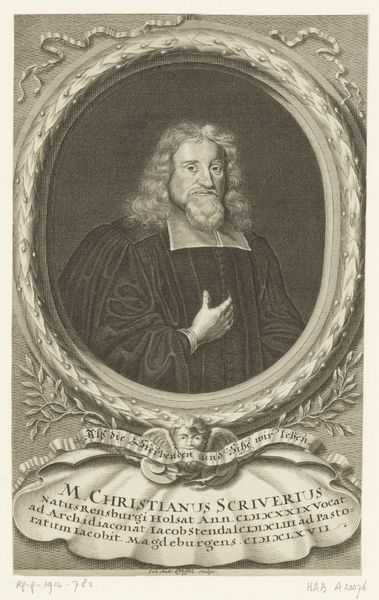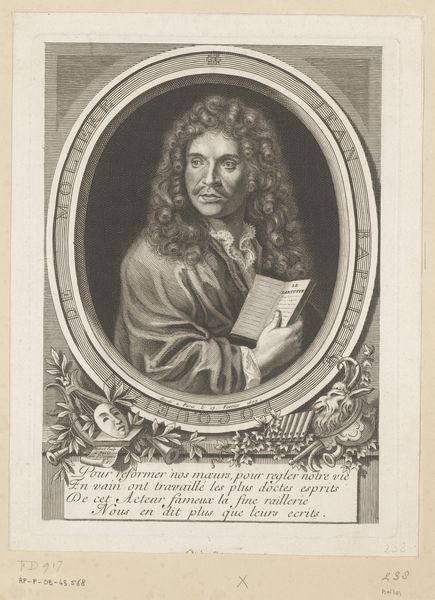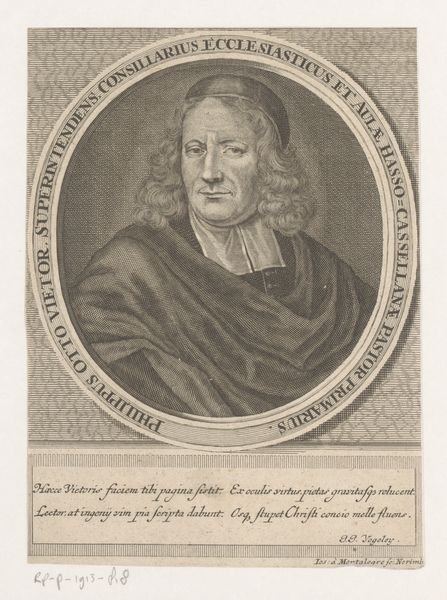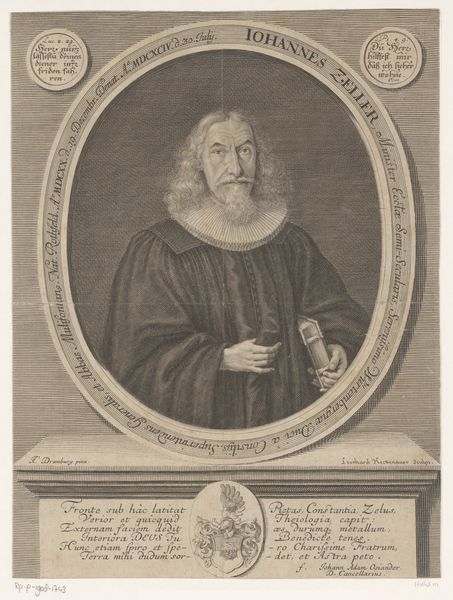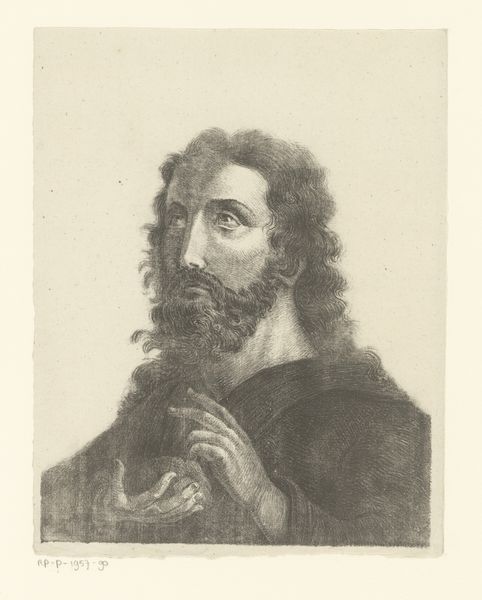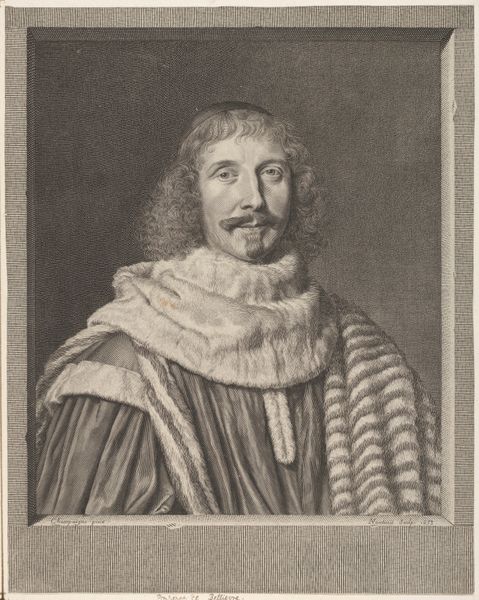
Dimensions: height 210 mm, width 145 mm
Copyright: Rijks Museum: Open Domain
Johann Phillip Walther made this portrait of Albrecht Dürer, rendered in the graphic precision of an engraving. This artwork is a testament to the labor-intensive process of engraving. Engraving, unlike drawing, requires the careful removal of material to create an image; lines are incised into a metal plate, which is then inked and printed. This exacting process demands both technical skill and artistic vision, and the result is a print with remarkable detail and tonal range. The very act of engraving emphasizes the hand of the artist, guiding the burin across the metal to bring Dürer's likeness to life. Consider the social context of printmaking during the 19th century: prints made art more accessible and served as a medium for disseminating images and ideas, playing a crucial role in shaping cultural perceptions. By focusing on the materiality and the meticulous handwork involved, we can gain a deeper appreciation of the print's significance as both a work of art and a product of its time.
Comments
No comments
Be the first to comment and join the conversation on the ultimate creative platform.
